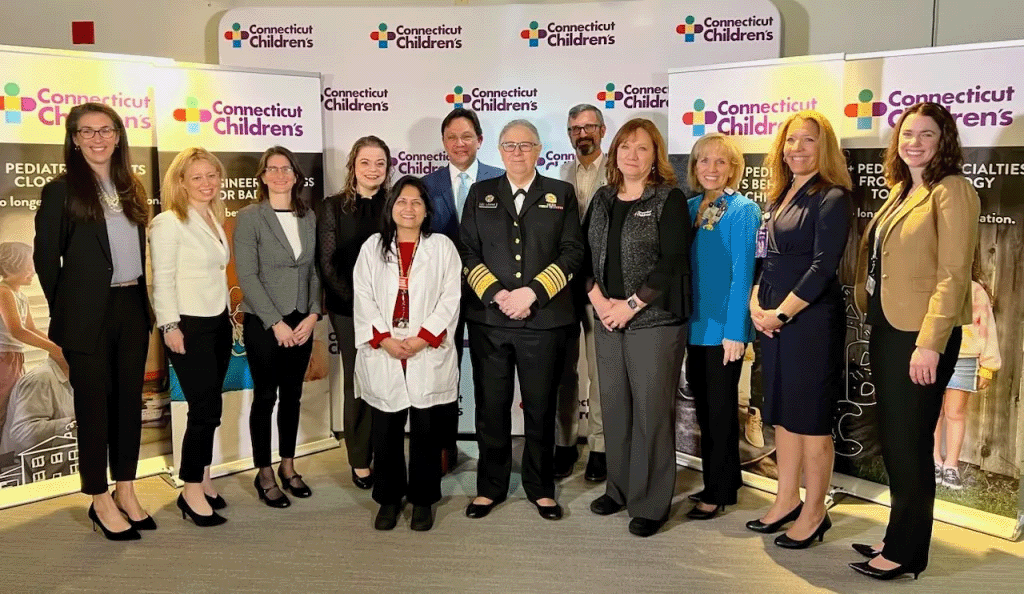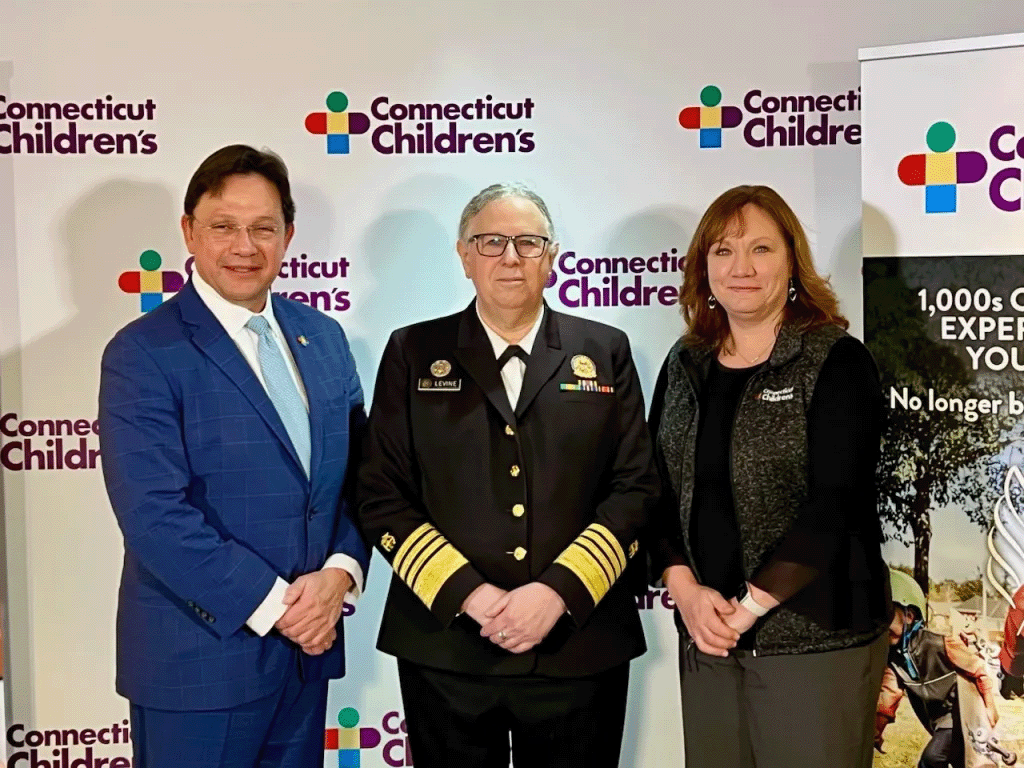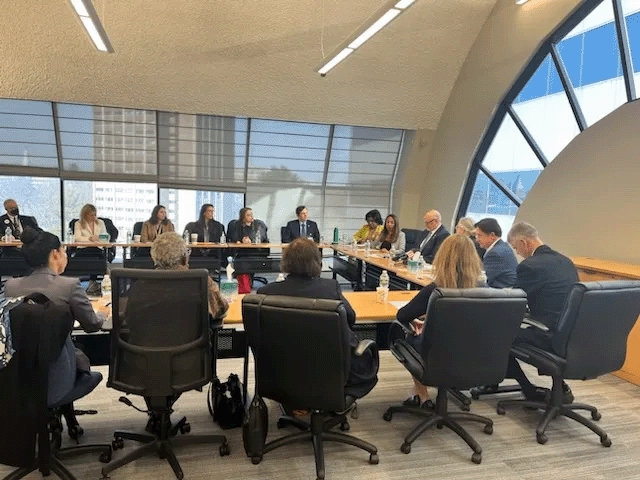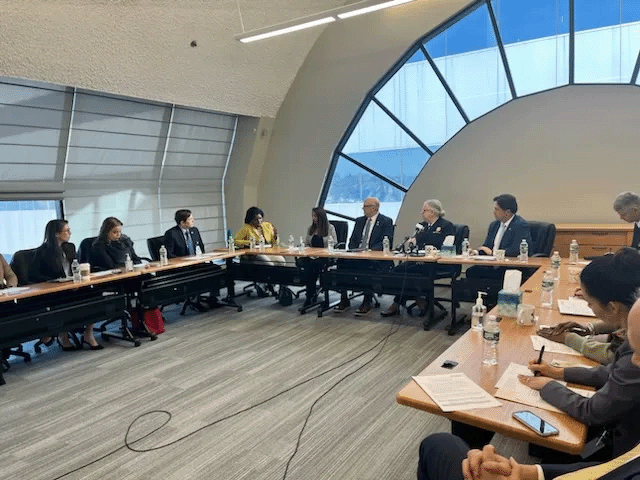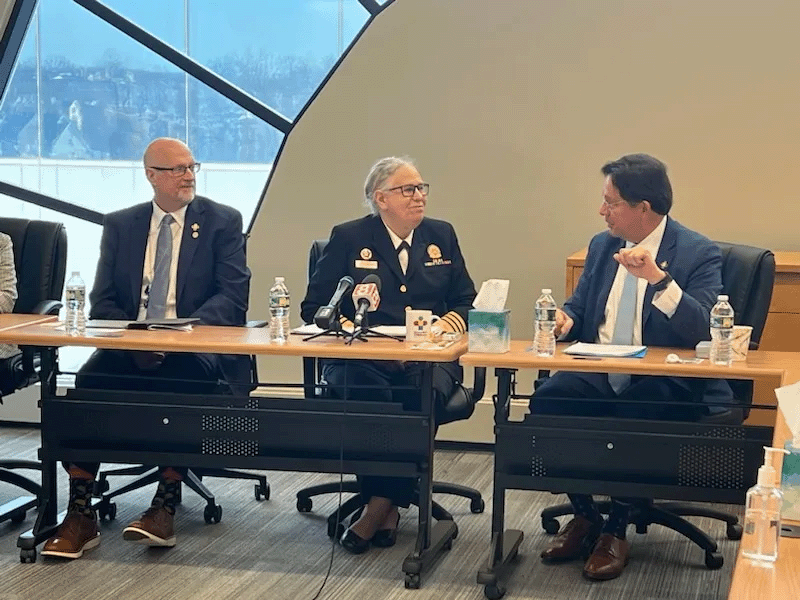Gender-Affirming Care
During her presentation, Admiral Levine stressed the importance of pediatric providers offering gender-affirming care for transgender and non-binary youth without discrimination. “We make sure that those who need our professional help receive that help no matter who they are or no matter the life circumstances that they have,” stated Admiral Levine.
Admiral Levine noted that many people across the country need the help of pediatric providers but don’t know where to turn, specifically transgender and non-binary youth. She added that the COVID-19 pandemic made it more challenging for such youth to seek counseling and gender-affirming care, and noted that many reported feeling stuck at home with unsupportive parents.
She also discussed the increased risk of suicide facing the LGBTQIA population. “Lesbian, gay, bisexual, transgender, queer and intersex Americans, especially our youth, are very challenged at this time and are attempting suicide at an alarming rate,” stated Admiral Levine, who noted that LGBTQIA youth who have at least one supportive adult to turn to were 40% less likely to report a suicide attempt.
She mentioned that health disparities experienced by LGBTQIA people of color are typically more inequitable than those experienced by their white peers. “Reducing disparities in the LGBTQI+ community must take into account systemic racism and implicit bias. We don’t make progress unless we all make progress,” stated Admiral Levine.
She mentioned that numerous peer-reviewed journals have noted that transgender youth are not predisposed to negative mental health outcomes, but rather that “it is the bullying, the harassment, the discrimination that transgender youth face that leads to these conditions.”
Those who are supported by their families and communities actually have excellent mental health outcomes. “Gender-affirming care is medical care. Gender-affirming care is mental health care and literally gender-affirming care is suicide prevention care,” stated Admiral Levine.
Long COVID
Admiral Levine also addressed Long COVID during her Pediatric Grand Rounds remarks, encouraging pediatric providers to educate the public and dispel misinformation related to the condition. “Long COVID is real. Long COVID impacts children, their families, adults and really our entire nation.”
She noted how Long COVID disproportionately impacts people of color and those with limited economic resources, as they report finding it challenging to get treatment, navigate health-related workplace issues, and find understanding among peers and healthcare professionals.
“This is a health equity issue as well because it impacts particularly communities that have faced longstanding health disparities, particularly communities of color, the African American community, the Latino community, the American Indian and Native Alaskan community, and the AAPI (Asian American and Pacific Islander) community.”
Admiral Levine noted that her office is in the process of establishing an Office of Long COVID Research and Practice at the U.S. Department of Health and Human Services. “Though we do not yet fully understand the impacts of Long COVID, HHS is dedicated to working with pediatric colleagues caring for impacted children right here in Connecticut and across the country to better understand how Long COVID impacts child growth and development across the pediatric age spectrum.”
She praised research currently underway to better understand the long-term effects of Long COVID and specifically congratulated Juan C. Salazar, MD, MPH, FAAP, Connecticut Children’s Physician-in-Chief, for being awarded one of eight grants from the National Institutes of Health to advance the rapid diagnosis of Multisystem Inflammatory Syndrome in Children, which is a rare and potentially fatal condition related to COVID-19.
“We don’t yet have a complete picture of the medical implications for Long COVID but this research will help us get there,” stated Admiral Levine.

